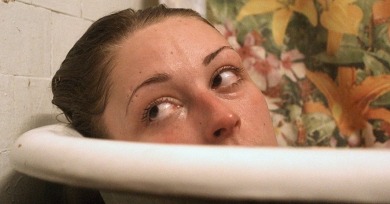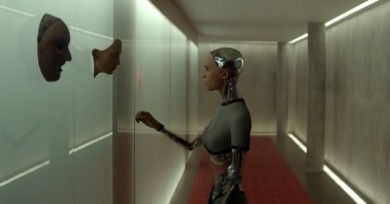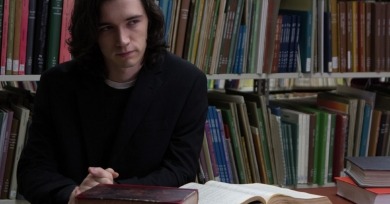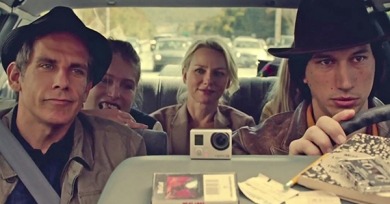Reviews
His latest film and fourth feature, Uncertain Terms, is perhaps Silver’s most mature depiction of imperfect love to date. As the title suggests, it focuses on relationships whose terms are in constant flux, setting its characters off on identity quests.
A compact 94 minutes, Heaven Knows What is a movie with feverish drive, dragged this way and that by Harley’s appetites and Ilya’s whim to carrot-on-a-stick her around with the promise of reciprocal affection. Throughout, the perspective commutes regularly between swooning intimacy and bystander detachment.
Tomorrowland is a folly and a failure, though there is something touching in its failure, tied as it is to the vision and personality of Walt Disney himself. No less than the Brook Farm and Oneida settlers, Disney was part of an American tradition of Utopian ambition.
There are easy jokes about academia ripe for the taking here, though L for Leisure mostly skips them; in fact, it often gives the sense of being too “mellow,” to borrow a word used prominently in the film, to bother with punchlines at all.
The social commentary here is broad, earnest, and welcome; the trick is that Miller and his cowriters have found a way to work these loftier concerns into what is basically an extended, 120-minute chase sequence, and to generate images that speak eloquently in the absence of dialogue.
A film like Martin Rejtman’s Two Shots Fired—if there is another film like Two Shots Fired—encourages critics to talk about the radical power of narrative digression. This assumes, of course, that a film has a centralized narrative to begin with . . .
The first half of the film moves in simple chronological order, but as Saint Laurent begins to break down emotionally, so too does the film’s careful construction, entering the subject’s point of view and moving fluidly through past, present, and future.
If the Maysles’ now legendary 1970 documentary Gimme Shelter were released today, how would it be received? Would 21st century audiences and critics, grown accustomed to nonfiction filmmaking obsessed with dotting i’s and crossing t’s, soak up the film’s hazy ambiguities?
It is of tantamount importance that Ava is a woman, that all previous iterations created by Nathan were women, and that they are, as conscious, female humanoids, under the subjugation of their creator, who doesn’t see this as problematic because he views them as less than.
With the overall invigorating Clouds of Sils Maria, Assayas takes another curious glance across the ocean, and his film, more humane than demonlover (if not as purely emotional as Clean), continues the trend of making films about women that are equally about play-acting and performance.
Simon Grim, for those who’ve forgotten and the many more who never knew, is the garbageman-turned-Nobel-Prize-winning poet created by Hartley for Henry Fool, and played by James Urbaniak in that film, Fay Grim, and now Ned Rifle, the conclusion of the trilogy.
While We’re Young traffics in a specific image of privileged urban whiteness, the kind in which materialism is seen as its opposite and liberalism is merely the fiction of all-inclusiveness.
The subject matter here may sound grim, but beneath this is a sentimentality that will be familiar to viewers of such films as Benji the Hunted and Homeward Bound: The Incredible Journey, Disney productions that specialize in assigning recognizable, sympathetic human motivations to animal protagonists.
Wenders is more directly present here than he is in Buena Vista or Pina, but even if we see him in the frame early on, directing his cameraman, it’s clear that Salt is Sebastião’s show—the film never descends into the kind of essayistic indulgence of his earlier documentaries.













